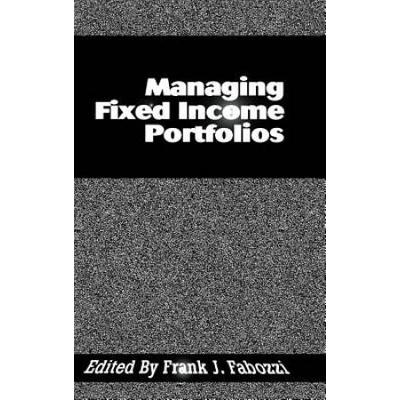FIXED INCOME FUNDS
Fixed income is a type of investing or budgeting style for which real return rates or periodic income is received at regular intervals at reasonably predictable levels. Fixed-income budgeters and investors are often one and the same – typically retired individuals who rely on their investments to provide a regular, stable income stream. Individuals who live on set amounts of periodically paid income face the risk that inflation will erode their spending power.
Fixed-income investors receive set, regular payments that face the same inflation risk. Income funds are named appropriately: their purpose is to provide current income on a steady basis. When referring to mutual funds, the terms “fixed-income,” “bond,” and “income” are synonymous. These terms denote funds that invest primarily in government and corporate debt. While fund holdings may appreciate in value, the primary objective of these funds is to provide a steady cash flow to investors.
As such, the audience for these funds consists of conservative investors and retirees. Bond funds are likely to pay higher returns than certificates of deposit and money market investments, but bond funds aren’t without risk. Because there are many different types of bonds, bond funds can vary dramatically depending on where they invest. Individual bonds may be the best known type of fixed income security, but the category also includes bond funds, ETFs, CDs, and money market funds.
Fixed Income ETFs
1. Money Market Funds
2. Bond Funds
3. Individual Bonds
Risks Associated with Fixed Income
Credit and Default Risk
As mentioned earlier, Treasurys and CDs have protection through the government and Corporate debt, while less secure still ranks higher for repayment than do shareholders. When choosing an investment take care to look at the credit rating of the bond and the underlying company. Bonds with ratings below BBB are of low quality and consider junk bonds. The credit risk linked to a corporation can have varying effects on the valuations of the fixed-income instrument leading up to its maturity. If a company is struggling, the prices of its bonds on the secondary market might decline in value. If an investor tries to sell a bond of a struggling company, the bond might sell for less than the face or par value.
Also, the bond may become difficult for investors to sell in the open market at a fair price or at all because there’s no demand for it. The prices of bonds can increase and decrease over the life of the bond. If the investor holds the bond until its maturity, the price movements are immaterial since the investor will be paid the face value of the bond upon maturity. However, if the bondholder sells the bond before its maturity through a broker or financial institution, the investor will receive the current market price at the time of the sale. The selling price could result in a gain or loss on the investment depending on the underlying corporation, the coupon interest rate, and the current market interest rate.
Interest Rate Risk
Fixed-income investors might face interest rate risk. This risk happens in an environment where market interest rates are rising, and the rate paid by the bond falls behind. In this case, the bond would lose value in the secondary bond market. Also, the investor’s capital is tied up in the investment, and they cannot put it to work earning higher income without taking an initial loss. For example, if an investor purchased a 2-year bond paying 2.5 percent per year and interest rates for 2-year bonds jumped to 5 percent, the investor is locked in at 2.5 percent. For better or worse, investors holding fixed-income products receive their fixed rate regardless of where interest rates move in the market.
Inflationary Risks
Inflationary risk is also a danger to fixed income investors. The pace at which prices rise in the economy is called inflation. If prices rise or inflation increases, it eats into the gains of fixed income securities. For example, if fixed-rate debt security pays a 2 percent return and inflation rises by 1.5 percent, the investor loses out, earning only a 0.5 percent return in real terms.
Pros & Cons
Pros
1. Steady income stream
2. More stable returns than stocks
3. Higher claim to the assets in bankruptcies
4. Government and FDIC backing on some
Cons
1. Returns are lower than other investments
2. Credit and default risk exposure
3. Susceptible to interest rate risk
4. Sensitive to Inflationary risk
Example of Fixed Income
To illustrate, let’s say PepsiCo floats a fixed-income bond issue for a new bottling plant in Argentina. The issued 5 percent bond is available at face value of 1,000 dollars each and is due to mature in five years. The company plans to use proceeds from the new plant to repay the debt. You purchase 10 bonds costing a total of 10,000 dollars and will receive 500 dollars in interest payments each year for five years that is – 0.05 x 10,000 = 500. The interest amount is fixed and gives you a steady income. The company receives the 10,000 dollars and uses the funds to build the overseas plant. Upon maturity in five years, the company pays back the principal amount of 10,000 dollars to the investor who earned a total of 2,500 dollars in interest over the five years 500 x five years.





![Fixed Income Analysis [With Workbook]](http://dgkh6zl92a7px.cloudfront.net/assets/asset.php?eurl=aHR0cHM6Ly9kMTAuY25ueC5pby9pbWFnZS9vYmovMTExMDAyNjU1NDU7c3E9NDAwO3A9MDt0PW9vUHdtTTBXVFdLT0ZoWVFWRm9sZURacE5BalVPREdjUlZhX2ZZbWxGM0NpN19PLWhtd3ViSHlBYlI1ODFqQ1BoODlCLThrUkxKcEZzS2hMUF9menYwWHZwRUwwa3JFMEdGMWhkTGhrYjBjWXI5VjBERVJ4)




